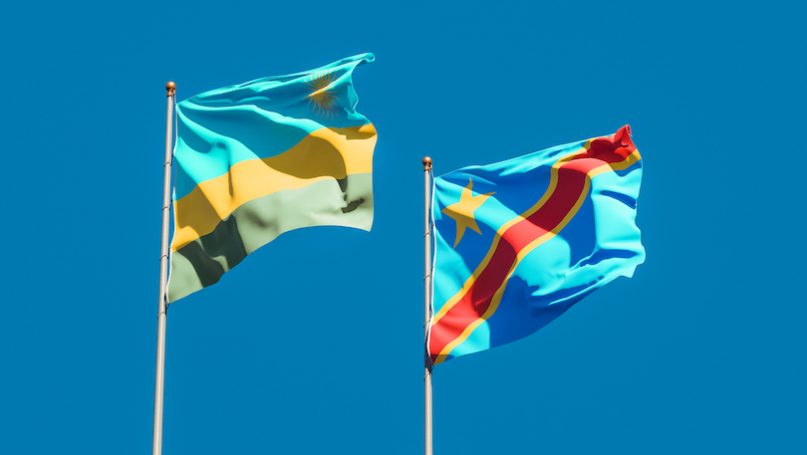Rwanda’s response to accusations of support for the DRC armed group

Accusing Rwanda of support to the Congolese armed group M23 is wrong and distracts from the real cause of continued conflict in Eastern DRC, and its impact on the security of neighbouring states, including Rwanda.
According Rwanda, it is a mistake to conflate the measures that country has put in place to guard its borders with support for any particular armed group in DRC. This tired old blame game undermines ongoing efforts by regional leaders to find lasting peace, particularly the Nairobi and Luanda initiatives, to which Rwanda is fully committed.
Like all states, Rwanda has a right to territorial integrity and reserves the right to defend its borders and citizens against cross-border attacks. Rwanda’s territorial integrity has been consistently violated over the years by both the FARDC and FDLR, including a brutal attack in October 2019 in Kinigi, a tourist area in Northern Rwanda, that killed 14 innocent villagers; several cross-border rocket shelling incidents earlier this year; incursions into Rwanda by soldiers of the Congolese armed forces; and an airspace violation by a Congolese fighter jet in November. This is in addition to the targeting of Rwanda’s border areas by FDLR as they fight alongside the FARDC against other armed groups in Eastern DRC.
There has been no accountability for the failure of the DRC Government to deal with the over 130 armed groups on its territory, the serious abuses against civilians committed by the Congolese armed forces and its auxiliary armed groups, including the genocidal remnant militia FDLR, which has been preserved for decades in the DRC. Authorities in DRC have also given license to virulent anti-Rwandophone and anti-Tutsi hate speech, public incitement, mob killings, and targeted violence, as detailed in reports of the UN and other regional and international organizations.
Rwanda is host to over 80,000 Congolese refugees living in camps, many for over 20 years. The international community should have the decency to address the persecution of a group of Congolese citizens, as well as how refugees of the same group can exercise their right to return safely to their country instead of languishing in refugee camps permanently.
Attempting to manage complex situations by simply repeating and amplifying false allegations of the DRC government cannot lead to solutions. Notably, the sensationalized “Kishishe massacre”, a fabrication of the DRC government that it attributed to M23, has quickly spread without any investigation of the facts by any credible entity, despite indications that the incident was in fact an armed confrontation between M23 and illegal armed groups allied to FARDC. This is symbolic of how the mess in the DRC has been encouraged and sustained for decades.
It is worth recalling that a United Nations peacekeeping operation, currently under MONUSCO, has been present in Eastern DRC for more than 22 years, at the cost of over US$1 billion a year, with little tangible results. Blaming Rwanda reflects an unwillingness on the part of the international community to face up to the root causes of conflict in Eastern DRC, and to demand true accountability from the state and non-state actors who are responsible for the resulting legacy of failure.
ND


